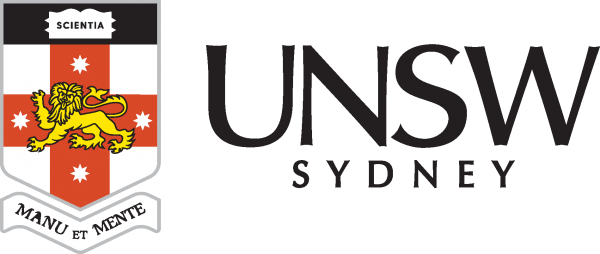University Of New South Wales: UNSW researchers awarded $15 million in NHMRC synergy grants
Three academics from UNSW Medicine & Health have been awarded National Health and Medical Research Council (NHMRC) Synergy Grants totalling $15 million. This places UNSW first for the number of grants and overall funding among Australia’s leading universities in this round of funding.
NHMRC Synergy Grants support outstanding multidisciplinary teams of investigators to work together to answer major questions that can’t be answered by a single investigator.
Dean of UNSW Medicine & Health Professor Vlado Perkovic congratulated the academics on their grant success.
“This funding announcement is a wonderful recognition of the work Glenn Marshall, Maria Kavallaris and Tamara Mackean do in their respective fields, and the collaborative nature of their projects.
“Their teams are addressing challenges in treating childhood cancer and institutional racism in our healthcare system, with the aim of improving the lives of patients and their families,” Prof. Perkovic said.
New therapies for children’s brain cancer
Professor Maria Kavallaris AM from Children’s Cancer Institute and UNSW Medicine & Health, has received a $5 million grant for a project that aims to improve the survival rates and quality of life for children with brain cancer.
The project brings together a team of world leading chemists, cancer biologists and clinicians to develop state-of-the art nanoparticles to package and deliver therapeutic drugs, monitor therapeutic response and imaging agents to brain tumour cells. It involves researchers from Children’s Cancer Institute, UNSW and the University of Queensland.
“Brain cancer is the number one cause of cancer-related death in children. Current therapies are often ineffective and highly toxic, and a transformative shift is required to tackle this disease to improve survival and quality of life. I am excited to be working with a fantastic interdisciplinary team of researchers to identify effective and targeted treatments and develop new ways to deliver and monitor therapy that improve outcomes for children with brain cancer,” Prof. Kavallaris said.
New funding to address institutional racism in Australia’s healthcare system
Associate Professor and Waljen woman Tamara Mackean from the Guunu-manaa (Heal) Aboriginal and Torres Strait Islander Health Program at The George Institute has been successful in securing $5 million in funding for a five-year project to reform the development and delivery of hospital care for Aboriginal and Torres Strait Islander peoples by addressing implicit bias and institutional racism within Australian hospitals.
A/Prof. Mackean is leading the collaboration between Aboriginal and Torres Strait Islander and non-Indigenous researchers to understand and address the complex dynamics of racism, implicit bias and colonisation which significantly impact the health and wellbeing of Aboriginal and Torres Strait Islander people and families.
“This project is focused on structural reform as a necessary part of healing for Aboriginal and Torres Strait Islander people and families who have suffered ongoing trauma and injustice within the health system,” A/Prof. Mackean said.
“Our diverse team will contribute to the development of research that acknowledges and respects working at the knowledge interface by bringing Aboriginal and Torres Strait Islander knowledge of health and healing alongside Western biomedical knowledge to produce new meaning based on mutual respect.”
Improving personalised treatments for high-risk children’s cancer
Professor Glenn Marshall AM from Sydney Children’s Hospital, Children’s Cancer Institute and UNSW Medicine & Health has received a $5 million grant for a project that will develop new combination therapies and diagnostics for high-risk child cancer patients.
“We aim to convert our early promising clinical outcomes in the ZERO Precision Oncology Program into strategies which lead to better combination drug treatment for high-risk child cancer patients, along with greater acceptability and uptake by consumers and their oncologists. Synergy between scientists, clinicians and consumers will improve translation of personalised anti-cancer therapies within our existing national clinical trial network,” Prof. Marshall said.
Partners to the project include Sydney Children’s Hospitals Network, Children’s Cancer Institute, Peter MacCallum Cancer Centre, The Royal Children’s Hospital Melbourne, Hudson Institute of Medical Research, Murdoch Children’s Research Institute, Cooper Rice Brading Foundation, Children’s Cancer Foundation, Neuroblastoma Australia, The Kids Cancer Project.

